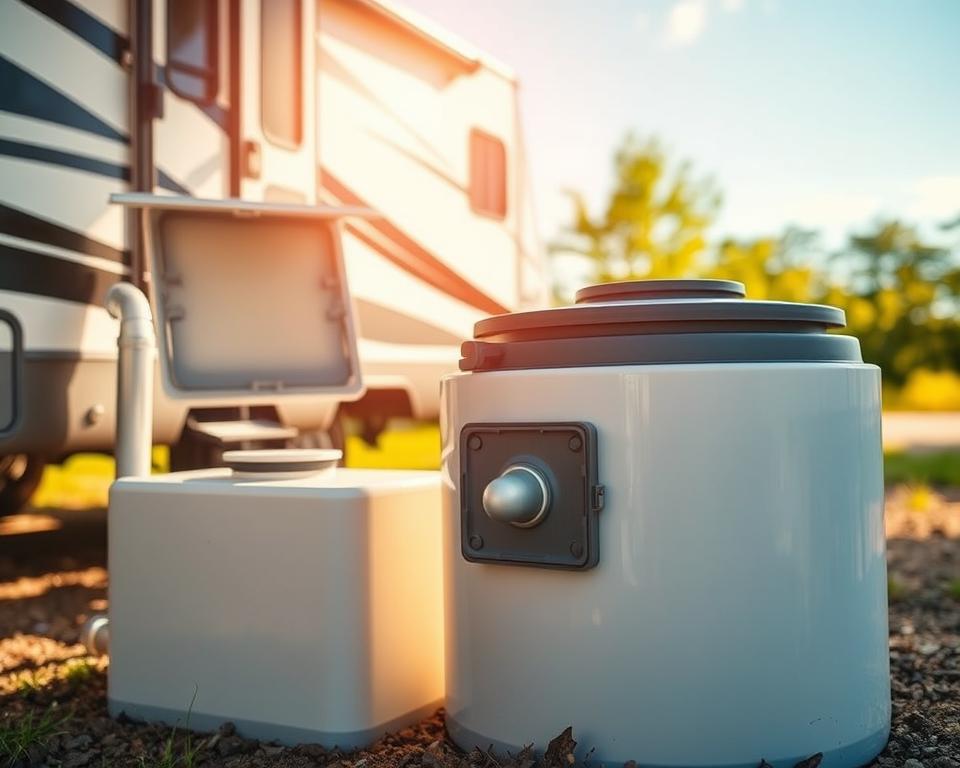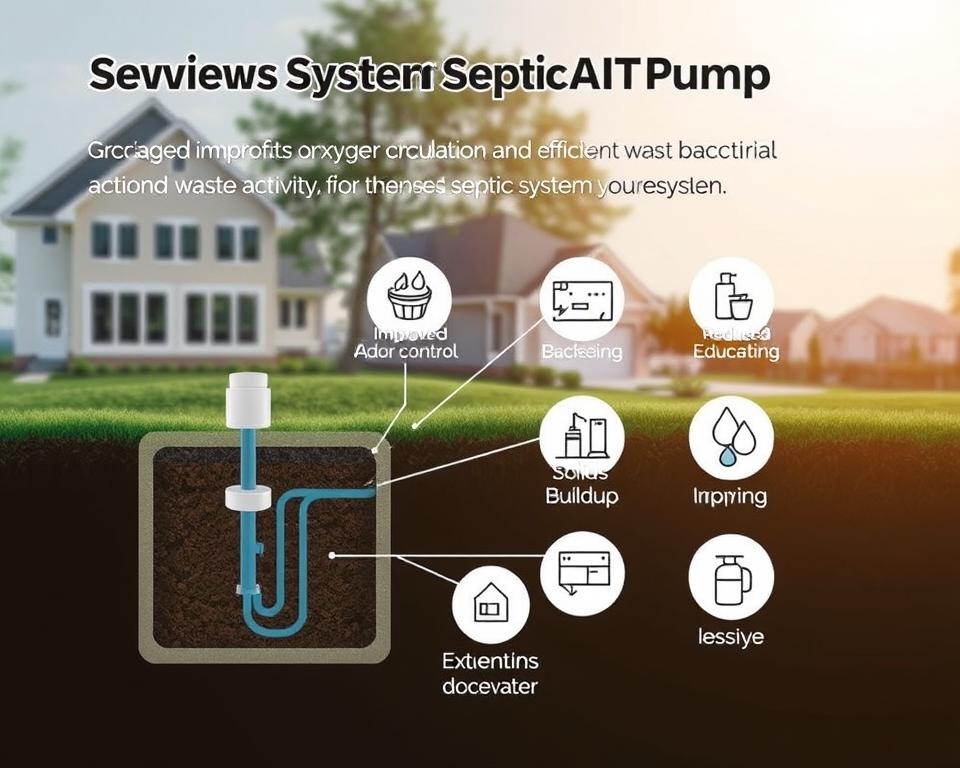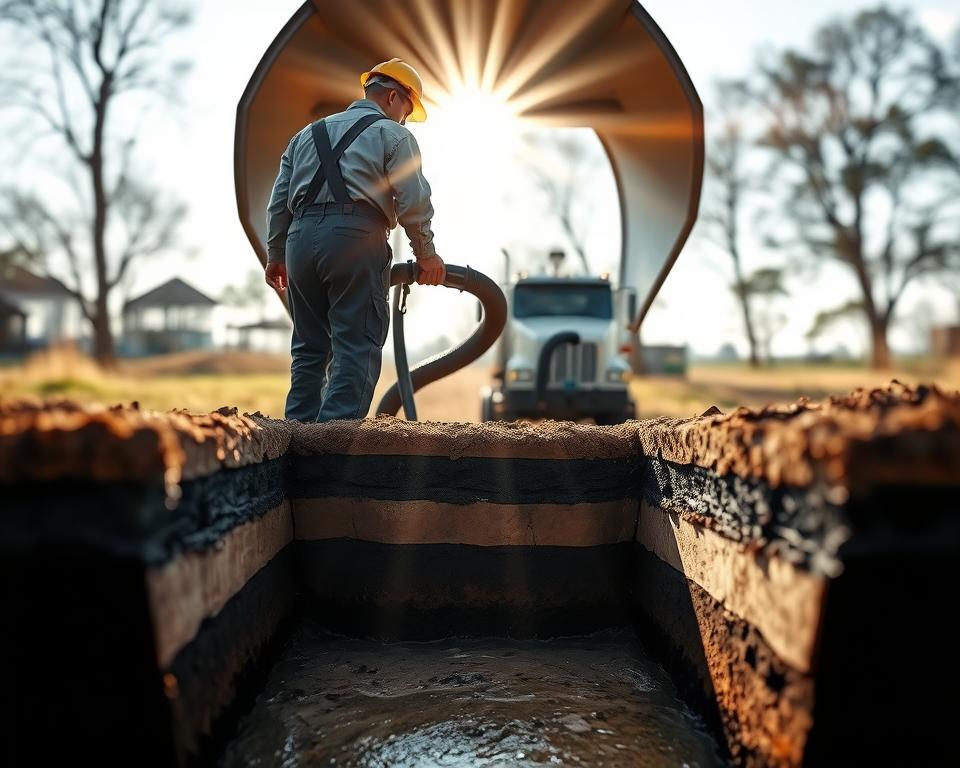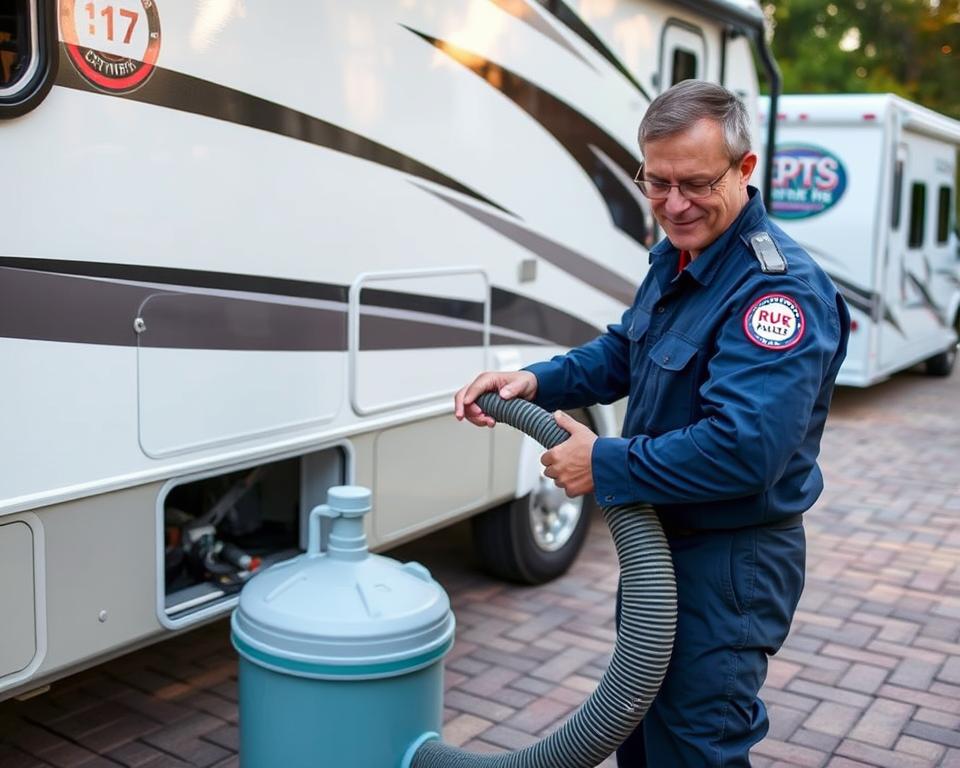Recreational Vehicle Septic Pumping: A Overview to Straightforward Removal
Ever wondered how your motorhome processes waste while enjoying the wilderness? RV septic pumping is crucial, perhaps more than you realize. It’s vital to have your motorhome’s waste system working well for trouble-free trips. In this overview, we cover RV sewage setups, the need for septic pumping, and top tips for stress-free excursions. With All in Sanitation’s expertise in RV septic tank service, you can focus on exploring, not emptying tanks.
Major Insights
- Understanding RV waste systems is crucial for efficient RV septic pumping.
- Frequent pumping stops unwanted odors and clogs while traveling.
- Implementing good routines boosts your RV’s sanitation durability.
- Rely on All in Sanitation for dependable RV waste solutions.
- Knowing when to pump helps ensure a hassle-free camping experience.
- Safe waste removal is fundamental to conscientious camping.
Getting to Know RV Sanitation Systems
On-the-go waste setups in RVs play a vital role in sanitation. They include black and gray water tanks. The black tanks collect toilet waste. Meanwhile, gray tanks deal with wastewater from sinks and showers. Knowing their operations improves waste management in your RV.
Proper upkeep of these components is crucial. Neglecting scheduled emptying can cause clogs. Potentially ruining your outdoor excursions. Ensure regular checks to keep both tank types functioning well.
Relying on a reputable black water provider ensures correct dumping. Also, treatments tailored for RV systems can prolong tank life and avert bad smells. Maintaining your sanitation setup enriches your camping freedom.
Why RV Septic Pumping is Essential
Routine septic service ensures a clean and efficient RV. Ignoring tank emptying can cause odors, clogging, and costly repairs. Waste buildup is a health hazard due to bacteria and contamination. Keeping up with maintenance is thus crucial.
Using a professional service like All in Sanitation ensures eco-friendly waste disposal. Their expertise guarantees safe, efficient handling of your waste. Staying on top of septic servicing keeps your trips worry-free. This practice preserves your adventures by sidestepping septic pitfalls.
Determining RV Pumping Frequency
How often you empty tanks influences your RV’s sanitation. Regular timing avoids travel interruptions. Your pumping schedule depends on occupancy, tank capacity, and usage patterns.
For occasional RV users, it’s best to pump the black water tank every 3-5 days. Full-time campers often require more frequent dumping. Keeping an eye on your gauge refines your servicing schedule.
Chemical treatments are useful for determining when to pump. Following these guidelines protects your sanitation apparatus. Preventing tanks from overflowing not only keeps your environment clean but also prolongs the plumbing lifespan of your RV.

RV Waste Emptying Techniques
RV owners have multiple dumping methods at their disposal. Maceration uses a pump to liquefy solids to transform waste into liquid sludge. This facilitates easier disposal at dumping stations or designated areas. Its efficiency and convenience make it a popular choice.
Home septic dumping allows for emptying the RV’s holding tank directly into a residential septic system. Check local rules to ensure lawful dumping. This method is both environmentally safe and directly manages RV waste when properly used.
Gravity dumping uses gravitational force to release waste into a cleanout port, being the most straightforward method. Each method for RV septic pumping presents unique pros and cons. Knowing the differences helps you pick the right approach for clean and efficient disposal.
RV Waste Disposal Tools
Effective RV septic pumping requires appropriate tools. A top-notch sewer hose is vital for connecting your RV’s waste tank to the dump station. Flexibility and strength are crucial qualities. A good sewer hose simplifies waste disposal, making it less of a hassle.
Macerator pumps are also essential in the equipment lineup. They convert solids into liquid for easier dumping. They’re particularly useful where gravity can’t aid the emptying process.
It’s crucial to maintain your RV septic pumping gear. Always clean hoses and tools post-use to avoid contamination. Proper storage guarantees readiness. Well-maintained gear ensures clean and smooth emptying.
Top Tips for RV Sewer Maintenance
A tidy waste setup makes camping more enjoyable. To ensure this, it’s important to adopt best practices for RV sewer cleaning. First empty black water, then use gray water to flush. Gray water flushes residual solids, keeping lines clear.
Choose enzyme or bacterial additives for superior breakdown. They maintain a balanced microbial ecosystem in your tanks. Stay away from harsh chemicals as they can kill the beneficial bacteria, reducing the system’s effectiveness.
Consistently rinsing tanks, hoses, and connectors is key to avoiding odors and blockages. Employing a dedicated sewer hose for black water use is a wise choice. It minimizes contamination risks and aids in maintaining system cleanliness.
Follow this routine to streamline sewer cleaning:
- Dump black water first, then gray water.
- Apply microbial additives routinely.
- Skip bleach and strong disinfectants.
- Flush all components post-dumping.
- Inspect the system regularly for leaks or issues.
Following these steps, RV owners can improve the life span and functionality of their wastewater systems. Resulting in stress-free outdoor adventures.
Upkeep for Trailer Septic Systems
Similar to RVs, mobile homes need regular septic care for lasting performance. Timely maintenance helps avoid costly fixes and downtime. It is recommended to pump the tank every three to five years, depending on how much you use it and its size.
Proper dumping techniques protect your septic infrastructure. Make sure to dispose of all waste and chemicals properly. Biodegradable solutions and level monitoring minimize harm. Steer clear of damaging cleaners that kill beneficial bacteria.
Arrange periodic expert check-ups to spot issues before they escalate. Proactive inspections maintain seamless functionality. Following these guidelines keeps your home septic in peak shape.
Camper Waste Dumping Advice
Proper camper dump practices enhance travel comfort. Start by finding designated dump stations on your route. Verify legal compliance to prevent penalties and eco-harm. Opting for RV-friendly products can enhance the tanks’ condition, facilitating efficient camper tank pumping.
Flushing with clean water helps clear tanks completely. Flushing tanks with water ensures complete emptying, averting the risk of waste residue. Residual waste leads to smells and clogs. Moreover, it supports an eco-friendly disposal method.
Advance planning is vital. By organizing your stops at disposal stations as per your travel plans, you can reduce hassle. Coordination makes emptying more efficient. Some useful tips for waste disposal include:
- Regularly monitor tank levels to decide when pumping is needed.
- Use bio-additives to accelerate breakdown and maintain tank health.
- Always wear gloves and clean hands post-drainage gear handling.
What You Need to Know About Holding Tank Treatments
Efficient waste management in motorhomes relies heavily on proper RV holding tank treatment. Formulations contain targeted microbes and enzymes. Designed to decompose solids efficiently. Consistent use curbs odors and keeps flow unobstructed.
Adding bio-treatments fosters a healthy septic ecosystem. They accelerate the natural decomposition process. Less frequent emptying prolongs service intervals.
When selecting an RV holding tank treatment, consider your motorhome’s requirements. Products vary significantly. Eco-friendly options that work well with home septic systems are best. They ensure efficient waste processing and enhance your RV’s waste management system.
| Treatment Form | Key Components | Benefits |
|---|---|---|
| Liquid Formulas | Bio-catalysts | User-friendly; powerful decomposition |
| Powdered Solutions | Enzymes | Cost-effective; long shelf life |
| Tablet Treatments | Pre-measured cultures | Convenient; pre-measured dosages |
Septic Service Errors to Dodge
Many RV owners make errors during septic pumping that complicate waste management. Skipping regular pumping leads to surprises. This leads to a quickly filling tank and subsequent issues. Additionally, the incorrect use of chemicals can damage the septic system. Leading to costly fixes and downtime.
Another common mistake is not following the correct order when dumping tanks. Black-then-gray order matters most. Failing to dump the black water before the gray can result in cross-contamination and foul odors. Avoid manual access to septic lids without professional help. Leave complex dumping tasks to experts for safety.
Ignoring tool upkeep invites equipment failures. Routine gear care supports clean, effective dumping. Avoiding these pitfalls simplifies your outdoor experience. It also ensures a cleaner and safer environment for everyone involved.
As a Final Point
Comprehensive septic manuals are indispensable for RV enthusiasts. They pave the way for hassle-free travels. Consistent care and system knowledge boost your adventure quality. Using proper disposal techniques and having necessary tools will lead to worry-free adventures.
Choosing All in Sanitation for septic services grants tranquility. Their skilled team manages waste with precision and care. Thus, you can immerse yourself in the joy of your travels and craft unforgettable moments.
Regular RV septic service is more than a mere task; it’s a cornerstone of responsible RV ownership. It combines the spirit of exploration with the assurance of a tidy, odor-free environment. This balance ensures a pleasant experience for you and your companions on every journey.


